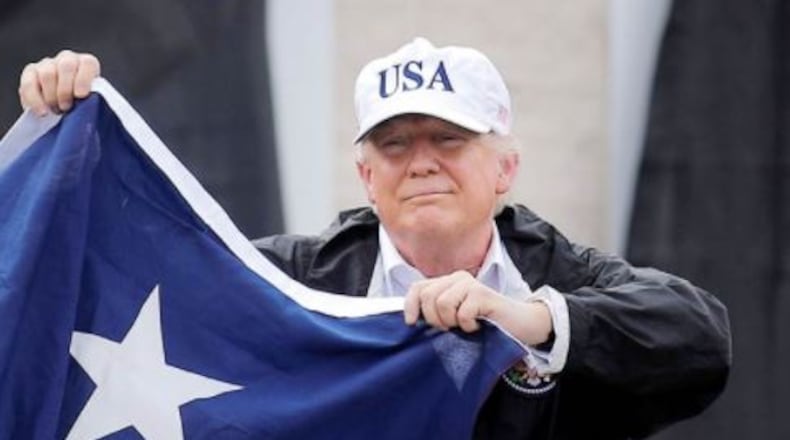A week after Hurricane Harvey slammed into the Texas Gulf Coast, the Trump Administration is asking Congress for almost $8 billion in disaster relief funds, in what could be the first installment of a recovery effort that may well be the most expensive ever for the federal government in dealing with a domestic natural disaster.
"These additional Federal resources would enable the affected States to address disaster response and immediate recovery needs in the areas most affected by Hurricane Harvey, said White House budget chief Mick Mulvaney in a letter to House Speaker Paul Ryan.
"Because the need for this funding arises from an unforeseen, unanticipated event resulting in the loss of life and property, these resources should be provided as emergency funding," Mulvaney added, in a signal that the White House will not press for offsetting budget cuts to pay for the extra spending.
The Mulvaney letter also asked Congress to raise the nation's debt limit; that may get added to the disaster aid plan.
A vote is expected next week in the House on the emergency request.
Before the storm hit, FEMA officials told reporters they had no worries about the level of existing disaster relief funds - estimated at $3.6 billion.
But that view changed in just one week.
"That allowed us to get through the initial response operations," said White House Homeland Security Adviser Tom Bossert, who made clear more money would be needed soon.
The scope of the disaster also foreshadowed a growing cost, as FEMA reported Saturday morning that more than 450,000 people had already filed for disaster assistance - "the largest registration after any single event."
Other notes about the relief effort:
+ Over 30,000 federal staff have been deployed in support of the Harvey response.
+ Over 42,000 people have used shelters in Texas and Louisiana.
+ 53,000 pounds of medical equipment and supplies have been sent to the area.
+ Nearly 3.7 million meals have been provided, along with almost 3.7 million liters of water.
Those numbers seem likely to increase.
"Many areas are inaccessible," FEMA reported Friday morning. "Federal, state and local search and rescue teams continue to reach those in stranded areas."
On Saturday, the President will go to Houston, and Lake Charles, Louisiana to review some of the damage, and meet with those who felt the brunt of the storm.
"He’ll have the chance to meet extensively with quite a few storm survivors, as well as talk with some of the volunteers that are helping administer a lot of the support that these individuals have needed over the last week," said White House Press Secretary Sarah Huckabee Sanders.
About the Author
The Latest
Featured



